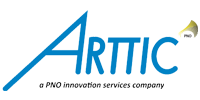Research Grant Application
Successfully apply
Tax credit up to € 1 million
Time saving when applying
Exhaust application amount
Secure research funding
A prerequisite for tax support for research and development is a certification by an auditing body. The examining bodies for the R&D tax credit are called certifying bodies.
A digital application for the R&D tax credit must be submitted to these certifying bodies. The certificate entitles the holder to claim the R&D tax credit from the tax office in the second step. It evaluates the eligibility of research projects, but not the amount of the R&D tax credit.
The legal basis for this is Section 6 of the Research Grants Act (FZulG). The certification body (BSFZ) is formed by the VDI Technologiezentrum GmbH, the AIF Projekt GmbH and the Deutsches Zentrum für Luft- und Raumfahrt e. V. – DLR.
The certificate application is only one step of the FZulG application process. However, the project start of the research and development projects to be submitted and the application are independent of each other. Currently, funding based on total personnel costs for research projects (or contract research) can be claimed retroactively from January 01, 2020.
When should the research grant application be started?
We recommend to start quickly with the application for the R&D tax credit certificate. We are happy to support you in this process. In general, the application can be made at any time. However, there are numerous reasons to apply with the support of ARTTIC:
Since the processing of the application for R&D tax credit by the certifying body can take up to 3 months, it is important to start the application process early in order to be able to claim R&D tax credit for previous marketing years before the end of the current year. Also to be taken into account is the processing time by the tax office to reconcile the assessment of the fiscal year.
The application must comply in form and content with the rules of the Research Grants Act and the current implementing regulation.
Only then will you achieve the optimal tax incentive. The hurdle for many companies: The application has only 800 characters to describe the project. These 800 characters must in turn comply with the Frascati Manual of the OECD. The Frascati Manual defines in detail, in approximately 400 pages, which projects are recognized as research projects. The 450 consultants of the PNO/ARTTIC Group have been familiar with this European policy framework for years. We can help you to identify eligible projects.
Project progress, working time and the expenses to be claimed (also retroactively) must be documented in accordance with the law.
The R&D tax credit can also be applied for projects that have already taken place up to 4 years ago, but not before 01.01.2020. We will support you in setting up a project administration and together we will set up accounting and documentation that complies with the law.
We have many years of expertise in European tax research funding programs.
ARTTIC has continuously examined the tax-based research funding programs that are already in place in Europe to determine where opportunities, hurdles and pitfalls exist in the audits and approvals, and what approach unites project sponsors in EU countries. Based on these findings, we have developed recommendations for action for our partners. These recommendations and guidelines are the core of our daily work and enable a promising project description in the application.
Contact us
How much time can your R&D team spend on the application?
Can you tell if your project is eligible under Frascati rules?
Do you know if you have identified all the expenses that fall under the R&D tax credit?
We help you with the application according to § 6 of the Research Grants Act and optimize your chances.
ARTTIC/PNO Group's advice on the research allowance explicitly does not include assistance in tax matters. This is reserved for tax advisors and other professionals authorized in accordance with § 3 StBerG.
We offer our services around the FZulG in cooperation with Ebner Stolz, which is one of the top ten independent auditing and consulting firms in Germany.
Research Grants Act (FZulG)


